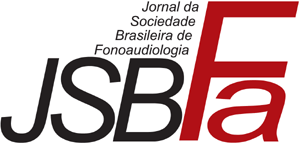Editorial
The solution to basic problems and the larger participation in the international scientific scenario brought the discussion of the productivity issue to Speech and Language Pathology and Audiology. Therefore, it seems useful to mention some recent publications about it.
On a recent paper in the Carta Capital magazine a philosophy teacher proposes the question of whether the evaluation models aren't actually a way of imposing a certain working model(1). According to the author, general evaluation methods tend to favor certain types of research and depreciate others, defining relevance criteria and growth/development projects. The use of this kind of criteria has generated scattered results in which the same institution may be placed among the "Top 20" in one evaluation and then on the 100th place in another. Several of these rankings were proposed by specific areas of research, of countries with a certain tradition, and the attempt to impose these models has generated clear distortions. Human sciences face the consequences of these models, not because they are not scientific, but because they have specific dynamic and impact that must be fully understood. Evaluations based on the number of published papers or the number of references received by one paper, for example, may be based on false assumptions. The larger number of citations received by a paper does not necessarily reflect its quality index, but rather that it was read by a larger number of persons. This number is directly influenced by the amount of researchers of a certain area or by the specificity of a certain theme. In our area, for example, it is clear that, for example, specific aspects of the Portuguese acquisition that are fundamental to the speech and language pathologist who works with Portuguese speakers will be of interest to very few North-American, European or Australian researchers. The impact of commercial interests in the financial support of research should also not be disregarded. In this sense, areas with less links to these alternatives will probably receive less visibility. Another important aspect to be considered is the strict ethical restrictions for research in "developed" countries, what places countries with large population and less barriers in the position of receiving a great amount of research supported by private commercial interests. Nothing against this kind of support, but these factors should be considered when evaluating the scientific production of a certain area, institution or researcher.
The private sector is already a great research financier in Brazil, supporting 53% of the research in the state of Sao Paulo in 2008, according to a report published on Pesquisa Fapesp(2). According to this publication, around 71% of the high school students go on to the university. The publication of papers indexed in international databases by Brazilian researchers has grown 43.5% between 2002 and 2006 while the world's growth was of 22.7%. The enthusiasm related to the participation in this activity is undeniable. But, as the philosopher points out(1), the production in Human Sciences is virtually excluded from these statistics and this demands consideration about how much important knowledge is being produced and not being adequately released so it can be used by the general society.
Regardless of these considerations, we continue to be evaluated according to our "productivity" and an important part of it is related to the authorship of scientific studies published in journals that are indexed in international databases. Another recent paper published by Revista Fapesp(3) deals with the hierarchy of different authors on a scientific paper. It is an interesting reading material with a direct and deep approach about the results of the choices that are made when submitting a paper to publication.
The maturity of Speech and Language Pathology and Audiology as a science demands consideration and positioning about issues that refer to the relations between Science and Society. In this context all the people involved in the publication of SBFa's journals contribute in several ways to this debate.
Fernanda Dreux
Executive editor of the JSBFa
REFERENCES
- 1. Safatle V. Avalliar para moldar. Carta Capital. 2011;(Julho):68-71.
- 2. Marques F. Avanços e desafios. Rev Pesq Fapesp Online. 2011;(Julho). [citado 2011 Jul 29]. Disponível em: http://www.revistapesquisa.fapesp.br/?art=4477&bd=1&pg=1&lg=
- 3. Marques F. Hierarquia complexa. Rev Pesq Fapesp Online. 2011;(Julho). [citado 2011 Jul 29]. Disponível em: http://www.revistapesquisa.fapesp.br/?art=4438&bd=1&pg=1&lg=
Publication Dates
-
Publication in this collection
14 Oct 2011 -
Date of issue
Sept 2011

